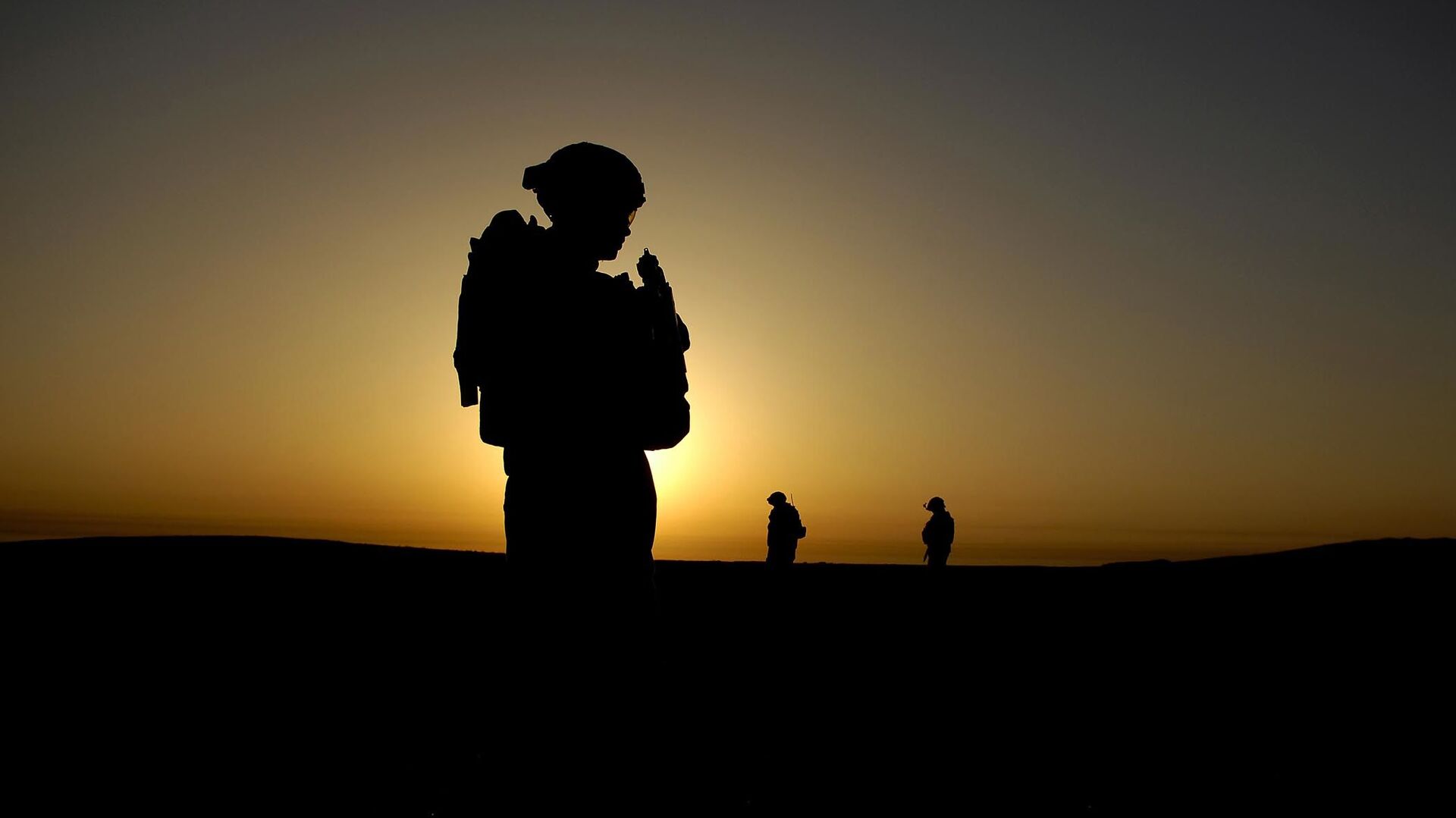https://sputnikglobe.com/20231218/us-v-gen-z-tiktok-complaints-reportedly-aiding-poor-military-recruitment-1115670689.html
US v. Gen Z: TikTok Complaints Reportedly Aiding Poor Military Recruitment
US v. Gen Z: TikTok Complaints Reportedly Aiding Poor Military Recruitment
Sputnik International
Lawmakers calling for TikTok to be banned may be given ammunition by a new report suggesting the social media platform is damaging the US Army’s recruitment efforts.
2023-12-18T22:58+0000
2023-12-18T22:58+0000
2023-12-18T23:29+0000
military
us
americans
us army
wikipedia
american civil liberties union (aclu)
tiktok
us military
military recruitment
military enlistment
https://cdn1.img.sputnikglobe.com/img/107829/10/1078291040_0:61:2100:1242_1920x0_80_0_0_fda46e7a04dddf955f1f5e29bec833a1.jpg
Lawmakers calling for TikTok to be banned may be given ammunition by a new report suggesting the social media platform is damaging the US Army’s recruitment efforts.“No sleep,” “the pay sucks,” and “sh**ty food” are among some of the complaints young veterans have reportedly aired on the video sharing site. One video making such claims has been viewed over 600,000 times since being posted three years ago, according to a British tabloid.Another video alleges a lack of privacy and complains about fitness requirements.Some may dismiss the social media activity as a harmless way for service members to blow off steam, but it comes in the midst of a major recruiting crisis for the US military. The Army fell 15,000 recruits short of its goals in 2022. The service performed slightly better in 2023, but still missed the mark by 10,000 recruits.Fitness requirements have proven to be a major barrier to recruitment; researchers at Johns Hopkins have found more than half of 18 to 15-year-old Americans are overweight or obese. Drug use and mental health problems round out the causes for many young Americans to be disqualified from joining the armed forces.Recently, the Army relaxed long-standing rules against visible tattoos in order to boost enlistment.In 2020, the Army began banning people from its esports Discord server after a trend emerged of users posting links to the Wikipedia article on war crimes committed by the United States. Administrators were forced to lift the bans after a successful lawsuit led by the American Civil Liberties Union.The US military attempts to appeal to younger Americans through various avenues, including consulting on major Hollywood films. The efforts have given rise to the term “the military-entertainment complex” to describe the Pentagon's attempts to shape the media. The military also seeks to boost recruitment through video games, consulting on first-person shooter titles and popular franchises such as “Call of Duty.”
https://sputnikglobe.com/20230825/us-military-must-enhance-incentives-to-attract-gen-z-recruits---ex-pentagon-analyst-1112873169.html
Sputnik International
feedback@sputniknews.com
+74956456601
MIA „Rossiya Segodnya“
2023
Sputnik International
feedback@sputniknews.com
+74956456601
MIA „Rossiya Segodnya“
News
en_EN
Sputnik International
feedback@sputniknews.com
+74956456601
MIA „Rossiya Segodnya“
Sputnik International
feedback@sputniknews.com
+74956456601
MIA „Rossiya Segodnya“
us military enlistment, how does us use egirls to help military recruitment, military tiktok,
us military enlistment, how does us use egirls to help military recruitment, military tiktok,
US v. Gen Z: TikTok Complaints Reportedly Aiding Poor Military Recruitment
22:58 GMT 18.12.2023 (Updated: 23:29 GMT 18.12.2023) The United States Army has struggled for years to effectively use social media as it seeks various avenues to shape public perception.
Lawmakers calling for TikTok to be banned may be given ammunition by a new report suggesting the social media platform is damaging the US Army’s recruitment efforts.
“No sleep,” “the pay sucks,” and “sh**ty food” are among some of the complaints young veterans have reportedly aired on the video sharing site. One
video making such claims has been viewed over 600,000 times since being posted three years ago, according to a British tabloid.
Another
video alleges a lack of privacy and complains about fitness requirements.
“You had a boujee life as a civilian but were really stupid at 18 so you joined the military and now you're forced to sleep and s**t out in the woods like an animal,” wrote TikTok user Itzel Hernandez in another video.
Some may dismiss the social media activity as a harmless way for service members to blow off steam, but it comes in the midst of a major recruiting crisis for the US military. The Army fell 15,000 recruits short of its goals in 2022. The service performed slightly better in 2023, but still missed the mark by 10,000 recruits.
Fitness requirements have proven to be a major barrier to recruitment; researchers at Johns Hopkins have
found more than half of 18 to 15-year-old Americans are overweight or obese. Drug use and mental health problems round out the causes for many young Americans to be disqualified from joining the armed forces.
Recently, the Army
relaxed long-standing rules against visible tattoos in order to boost enlistment.

25 August 2023, 03:29 GMT
The US Army has struggled for years to effectively communicate with younger generations via social media. Controversy has been generated by its use of “e-girl” and “thirst trap” accounts online, using sex appeal to promote enlistment.
The influencers are paid members of the Army’s psy-ops division, utilizing a tactic often employed by the Israeli military.
In 2020, the Army began
banning people from its esports Discord server after a trend emerged of users posting links to the Wikipedia
article on war crimes committed by the United States. Administrators were forced to lift the bans after a successful lawsuit led by the American Civil Liberties Union.
The US military attempts to appeal to younger Americans through various avenues, including
consulting on major Hollywood films. The efforts have given rise to the term “the military-entertainment complex” to describe the Pentagon's attempts to shape the media. The military also seeks to
boost recruitment through video games,
consulting on first-person shooter titles and popular franchises such as “Call of Duty.”



